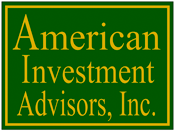July 10, 2020
The underlying story this past quarter has been the way the US stock market rallied in the face of uncertainty. A lot of uncertainty. While the economy struggled under the weight of depression-type economic and unemployment numbers, the stock market seemed to find its footing and is predicting a quick economic turnaround. The S&P 500 rallied 20.5% in the second quarter while small-cap stocks returned 25.4%, but still trail the S&P 500 by close to 10% year-to-date. Foreign stocks are also lagging the S&P 500 by about 8% so far this year. This is nothing new. Many analysts have said and continue to say that foreign stocks are cheap.
If you thought the last three months brought on uncertainty, the next six to twelve months will bring even more. The recent spike in COVID-19 cases, the upcoming presidential and congressional elections and an economy that will take months if not years to mend will all give investors plenty to think about in the weeks ahead. With that in mind, I felt it was important to shore up our fixed income allocation. While the Federal Reserve has pledged to buy just about any fixed income investment to keep the bond market from freezing, I still thought it would be prudent to de-risk the bonds within our portfolios. I accomplished this by selling the Metropolitan West Unconstrained fund (MWCIX), which many of you owned, as well as by selling half of the PIMCO Income fund (PIMIX). While neither fund contained high yield (junk) bonds, they did tend to “reach” for yield by taking on more credit risk. While I may go back and add to these funds once the COVID crisis is in the rearview mirror, I figure now is a good time to increase the quality of the bonds we hold going into the second half of the year. I purchased a relatively new fund, Vanguard Core Bond Admiral (VCOBX), with the proceeds. VCOBX’s management team closely tracks the Bloomberg Barclays US Aggregate Bond index, but overweights undervalued areas and under-weights overvalued areas according to their research. The net result of this exchange will drop the expense ratio we are paying for this section of our fixed income by at least 78% (from 0.45% to 0.10%) all the while increasing our overall bond quality. Depending upon the size of your holdings, we may have added Vanguard Total Bond Market ETF (BND) instead of VCOBX.
On the equity side, we sold down our mid and small-cap allocations and bolstered our large-cap holdings. Should this recession continue, large-cap securities should perform better than some of the smaller names due to having stronger balance sheets as well as having a more global reach. We used those proceeds to purchase more dividend paying stock funds like Vanguard Dividend Growth, which likes to include companies that have grown their dividends over the past 10 years as opposed to lowering or eliminating their dividends.
These moves will help bolster our portfolios should the stock market suffer another decline in the months ahead. As everyone knows the biggest money management decision investors face is not necessarily the underlying funds, but the overall stock/bond allocation we select for each of your portfolios. Thus, if you want to make a change in this regard, please contact us.
If you have not stopped in to see us lately, please do not hesitate to contact me to schedule an appointment. Enclosed you will find your Portfolio Holdings, Performance Analysis and Position Performance reports as of June 30, and a quarterly Account Management Fee Statement. Please call us should you desire the most recent copy of our Form ADV Part 2A. In addition, do not forget to notify us should your investment objectives or personal financial situation change.
Enjoy the warm weather and be safe.
Best regards,
Bill

